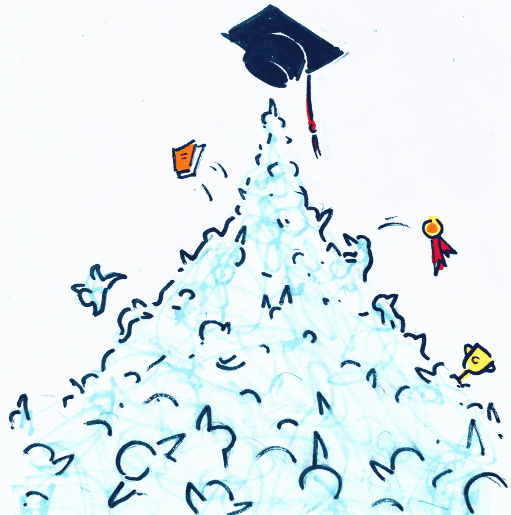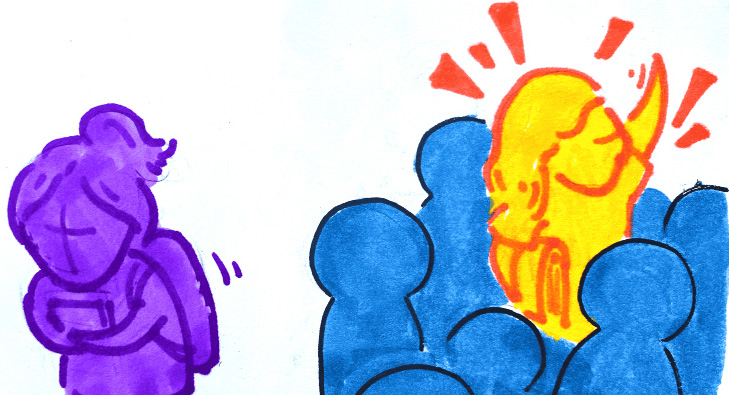With the add/drop period now over, so are the emails to the academic office desperately requesting a last-minute course change. From wanting to avoid a “scary” teacher, free up time in the week for a sleep-in, sign up for an “easier” class, or schedule a quick nap during double lunch, we’re concerned that students have become too willing to add and drop classes on a whim in the quest to “optimize” their schedule.
We freely acknowledge that there are many valid reasons to change your schedule around in the first weeks of school. Rest assured: The Record will investigate the vast conspiracy that makes getting into a class you’re actually interested in (or getting off a waitlist, period) a task of Sisyphean proportions. But for now, we’re focusing on something a little more timely: addressing students who are taking advantage of the add/drop system.
We understand that the idea of the “perfect schedule” is appealing, but spoiler alert: it doesn’t exist. There’s no combination of course switches that will make you perfectly happy about your schedule. It is wishful thinking, and frankly selfish, to try to engineer your schedule course by course, micromanaging each and every possibility to get just what you want.
Think about why you’re here—to be challenged. If you ask most alums about their favorite class during their Hotchkiss career, they won’t name one that handed out “easy As.” Our most rewarding experiences as students come when, with a proper amount of scaffolding and support, we overcome obstacles we previously deemed “impossible.” We come here to maximize our education—something that doesn’t happen when you set all your classes to “easy mode.”
Add/drop hackers should consider the domino effect that switching a class might have. Take English, for instance. In a setting so focused on the Harkness method, student input serves as the key to a productive classroom. Yet with so many classmates coming and going, students may find it harder to find their voices in the classroom. And think about the books bought from the campus store. For every student who finds their books out of stock, there’s another who shoved those same books in the back of their drawer after dropping the class. You also need to think about the teachers. It’s difficult to establish a stable environment for meaningful learning with new students waltzing into class every day. Teachers should not have to worry more about learning and relearning names than covering their curricula.
We beg you to consider the ramifications of your actions. You’re never going to get the “perfect schedule,” and by pursuing one, you’re hurting your learning experience and dampening others’. So, as the add-drop veterans we are, let us leave you with one last piece of advice: at the end of the day, you get what you get and you don’t get upset.





